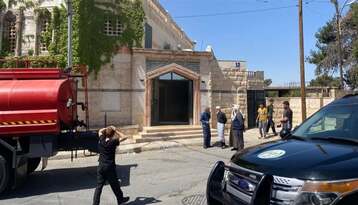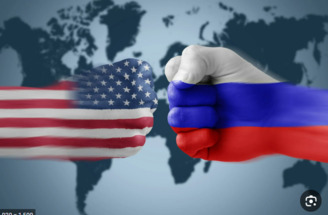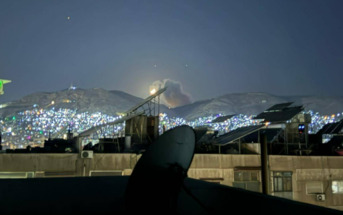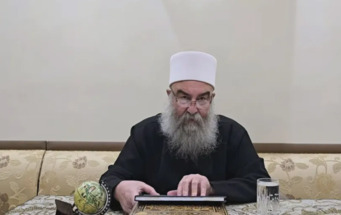-
Aleppo Agreements Enter a New Phase with a Second Withdrawal of Kurdish Forces
-
The issue of the return of displaced residents to Afrin faces multiple obstacles related to the lack of trust in armed factions, necessitating real confidence-building measures and the deployment of n

The second group of Kurdish military units has started to withdraw from the Sheikh Maqsoud and Ashrafiyeh neighborhoods in Aleppo. This withdrawal represents a significant development in the reconfiguration of the security landscape in northern Syria, especially amid the accumulated tensions the region has witnessed in recent years.
According to informed sources, these forces will head toward areas in the eastern Euphrates as part of newly introduced security measures aimed at reinforcing stability in the region, following political and military understandings reached among the concerned parties.
This move reflects a new direction in the repositioning of military forces in northern Syria, potentially paving the way for new administrative arrangements in line with regional and international changes.
It is important to note that this initiative is an additional step in the ongoing understandings between the Syrian Democratic Forces (SDF) and the Syrian government, following a series of meetings that discussed ways to resolve the military situation in northern Syria.
This development comes amid questions about the commitment of the different parties to implementing the terms of the agreements, especially given the history of fragile trust between the conflicting forces in the region.
On April 4th, the Kurdish military units began withdrawing from the Ashrafiyeh and Sheikh Maqsoud neighborhoods in Aleppo, in accordance with the recent agreement between the Syrian Democratic Forces and the new administration in Damascus, heading towards the eastern Euphrates under the supervision of the Syrian Ministry of Defense.
These developments are part of efforts to implement the elements of the initial agreement between the new Syrian administration on one side and the Syrian Democratic Forces on the other, which was reached on March 28th. The agreement stipulates transforming the "Asayish" internal security forces in Sheikh Maqsoud and Ashrafiyeh into public security forces with the same personnel, thereby placing them under the "Autonomous Administration."
The agreement reflects an attempt to reconcile local security needs with central authority, while maintaining some administrative autonomy for areas with a Kurdish majority.
The agreement also includes the release of 170 prisoners from the Syrian Democratic Forces, as well as several bodies of the dead, and around 400 detainees and bodies of public security and faction members, with all of this to be supervised and jointly managed by the U.S. until it is officially announced.
The U.S. involvement points to an international aspect in these understandings and may reflect Washington's desire to contribute to organizing the relationship between its Kurdish allies and the Syrian government, serving its strategic interests in the region.
Regarding Afrin, residents are demanding guarantees for their return, with these guarantees revolving around the departure of the "National Army" factions. The lack of trust in the "National Army" elements represents a major challenge. The Afrin issue serves as a real test of the parties' seriousness in addressing the issues of displacement and deportation and their ability to create a safe environment that allows original residents to return to their areas without fear of revenge or discrimination.
You May Also Like
Popular Posts
Caricature
BENEFIT Sponsors BuildHer...
- April 23, 2025
BENEFIT, the Kingdom’s innovator and leading company in Fintech and electronic financial transactions service, has sponsored the BuildHer CityHack 2025 Hackathon, a two-day event spearheaded by the College of Engineering and Technology at the Royal University for Women (RUW).
Aimed at secondary school students, the event brought together a distinguished group of academic professionals and technology experts to mentor and inspire young participants.
More than 100 high school students from across the Kingdom of Bahrain took part in the hackathon, which featured an intensive programme of training workshops and hands-on sessions. These activities were tailored to enhance participants’ critical thinking, collaborative problem-solving, and team-building capabilities, while also encouraging the development of practical and sustainable solutions to contemporary challenges using modern technological tools.
BENEFIT’s Chief Executive Mr. Abdulwahed AlJanahi, commented: “Our support for this educational hackathon reflects our long-term strategic vision to nurture the talents of emerging national youth and empower the next generation of accomplished female leaders in technology. By fostering creativity and innovation, we aim to contribute meaningfully to Bahrain’s comprehensive development goals and align with the aspirations outlined in the Kingdom’s Vision 2030—an ambition in which BENEFIT plays a central role.”
Professor Riyadh Yousif Hamzah, President of the Royal University for Women, commented: “This initiative reflects our commitment to advancing women in STEM fields. We're cultivating a generation of creative, solution-driven female leaders who will drive national development. Our partnership with BENEFIT exemplifies the powerful synergy between academia and private sector in supporting educational innovation.”
Hanan Abdulla Hasan, Senior Manager, PR & Communication at BENEFIT, said: “We are honoured to collaborate with RUW in supporting this remarkable technology-focused event. It highlights our commitment to social responsibility, and our ongoing efforts to enhance the digital and innovation capabilities of young Bahraini women and foster their ability to harness technological tools in the service of a smarter, more sustainable future.”
For his part, Dr. Humam ElAgha, Acting Dean of the College of Engineering and Technology at the University, said: “BuildHer CityHack 2025 embodies our hands-on approach to education. By tackling real-world problems through creative thinking and sustainable solutions, we're preparing women to thrive in the knowledge economy – a cornerstone of the University's vision.”
opinion
Report
ads
Newsletter
Subscribe to our mailing list to get the new updates!






















